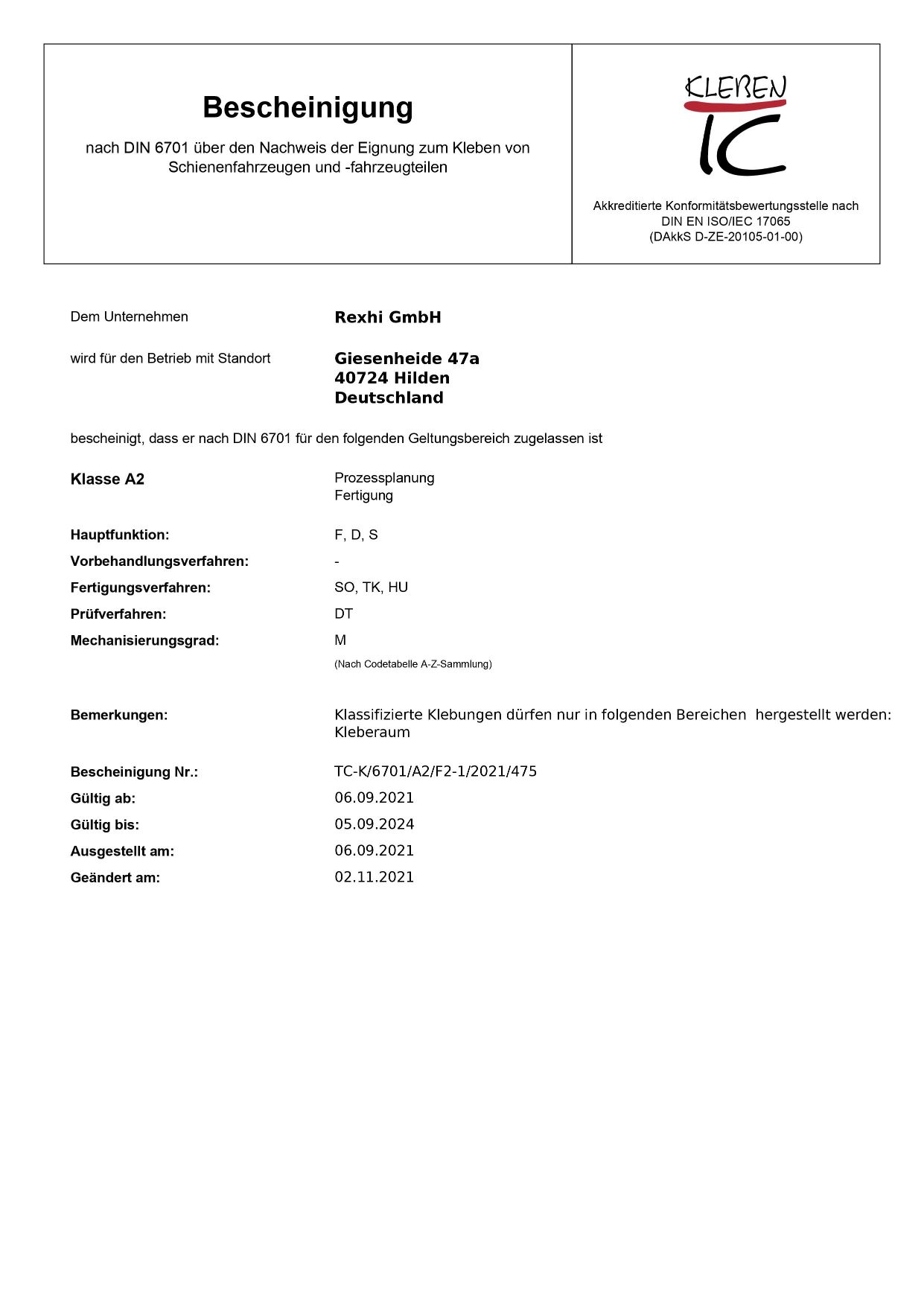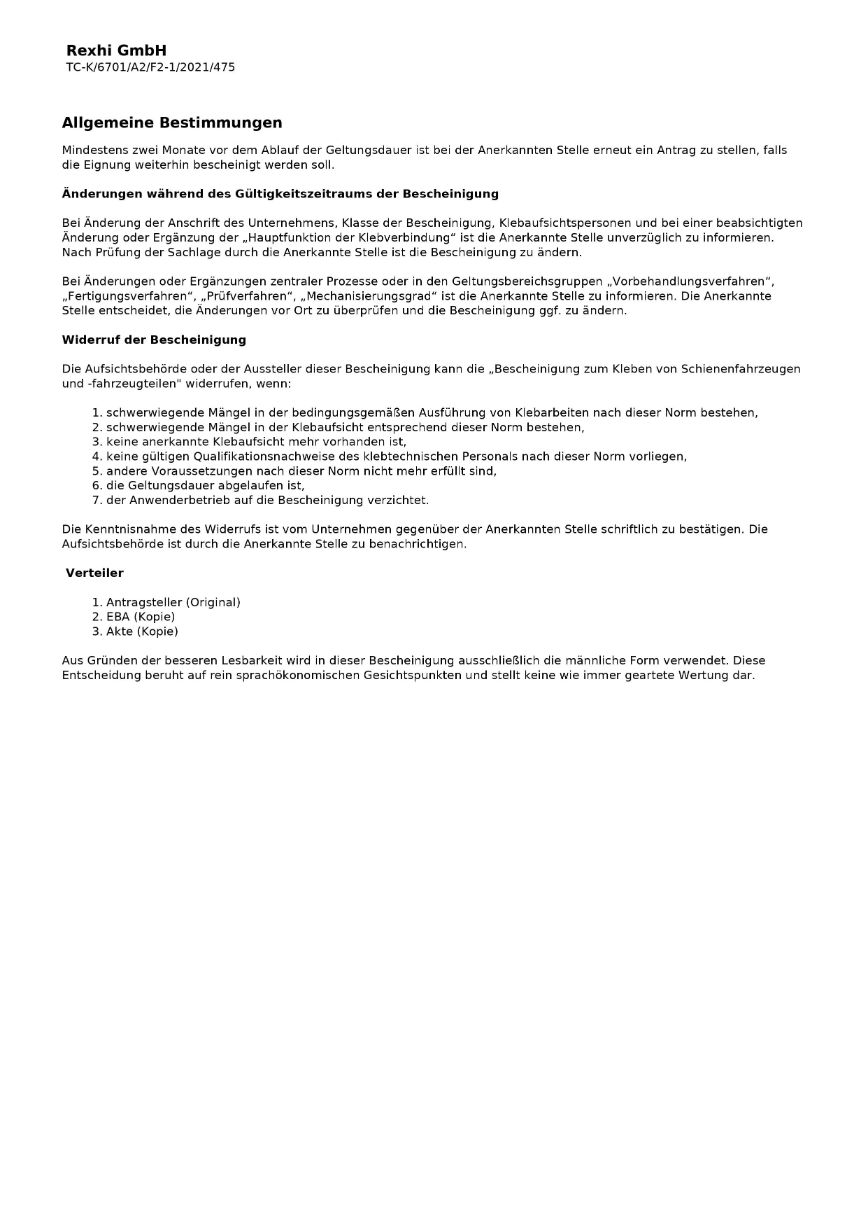Measurable quality as well as secured processes and procedures have the highest priority at Connova Group. We define and check all important parameters continuously: from material purchasing, through all internal production processes, to the delivery of the end products.
We control and document our products using the most modern testing equipment and methods and according to the highest standards. At the customer’s request, we confirm the results with a certificate of conformity (CoC).
As a modern company, we have described our processes and procedures in detail and standardized them wherever possible. We have been meeting all the requirements of ISO 9001 as well as the higher requirements of EN9100 for the aerospace industry for years.
Both the Albania and Germany locations of the Rexhi Group have the following quality management certificates:
ISO 9001:2015, DIN 6701-2, Q1 Supplier/Supploer DB AG, and EN 15085-2
After the introduction of a quality management system in accordance with ISO 9001, the first certification by TÜV Rheinland followed in 2007.
Similarly to welding processes also bonding processes are subject to high
requirements. We are enabled to perform bonding processes according to class
A2, DIN 6701-2.
After thorough examination of our company and the corresponding audits, we have been a qualified supplier to Deutsche Bahn AG since 2008.
We also have the welding certificate according to EN 15085-2 and can therefore meet the requirements for welded components for rail vehicles.
We also have the welding certificate according to EN 15085-2 and can therefore meet the requirements for welded components for rail vehicles.
We also have the welding certificate according to EN 15085-2 and can therefore meet the requirements for welded components for rail vehicles.
We also have the welding certificate according to EN 15085-2 and can therefore meet the requirements for welded components for rail vehicles.
At REXHI, quality in the plastics industry is ensured through careful selection of high-quality materials, precise manufacturing processes, strict quality control, continuous customer feedback, and adherence to certifications and standards.
At Rexhi, measurable quality and secure processes are of paramount importance. We continuously review all key parameters, starting from material procurement through all internal production processes to the delivery of end products. Our products are controlled and documented using state-of-the-art testing equipment and methods, always in accordance with the highest standards. Upon request, we confirm the results with a Certificate of Conformity (CoC).
At Rexhi, there are various approaches to quality assurance to ensure that their products meet the highest standards. The company has implemented internal processes and procedures to ensure compliance with internal quality standards and undergoes external inspections and certifications by independent organizations or authorities. Quality control and documentation are carried out using state-of-the-art testing equipment and methods, with results confirmed by a Certificate of Conformity upon request. Rexhi also has a quality management system ensuring that all processes are thoroughly described and standardized, and has been meeting all ISO 9001 requirements and the higher requirements of EN9100 for the aerospace industry for years.
In quality assurance, measures are taken to ensure that products or services meet quality standards. This includes planning standards, controlling and monitoring processes, taking corrective actions in case of deviations, documenting results, providing employee training, considering customer feedback, and continuously improving quality standards and procedures. Ultimately, the goal of quality assurance is to ensure high product quality and customer satisfaction.
Various factors contribute to quality assurance, including clear quality standards and specifications, effective quality controls and monitoring procedures, trained personnel with an understanding of quality requirements, continuous improvement based on feedback and data, and transparent communication both internally and with customers regarding quality issues and improvements.

